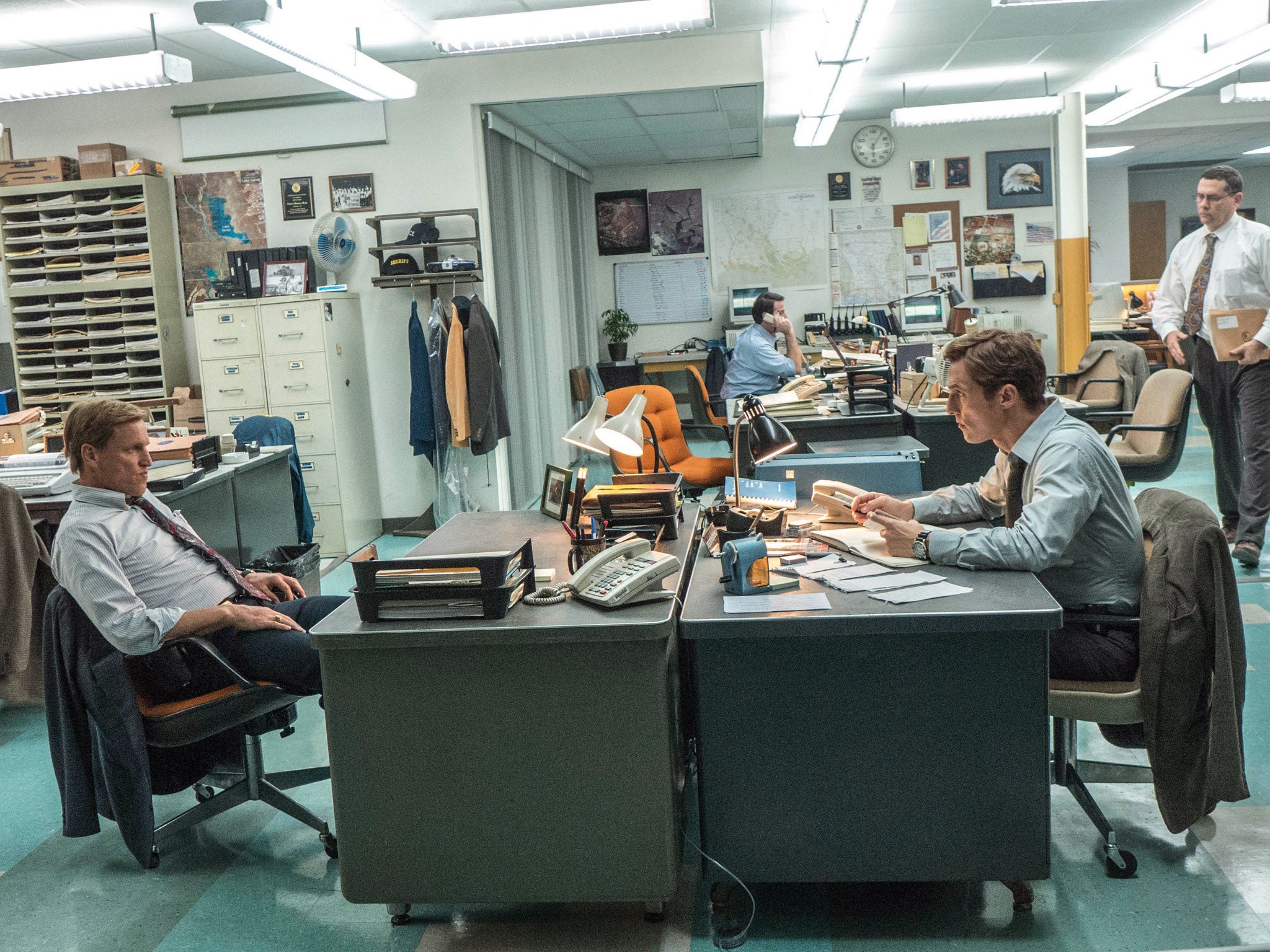True Detective: With Matthew McConaughey and Woody Harrelson, this is as cinematic as television gets
It’s worth staying on the trail of this slow-burning Deep South crime drama

They call it the McConaissance.
Matthew McConaughey’s transformation from shirtless himbo to enthralling actor has already earned him his first Oscar nomination. His new-found intensity is perfectly showcased by True Detective, the eerie, Louisiana-set crime thriller, which started an eight-week run on Sky Atlantic on Saturday.
He plays Det. Rustin Cohle, a loner given to nihilistic speechifying, much to the annoyance of his gregarious good ol’ boy partner, Det. Martin Hart (played by fellow Texan, Woody Harrelson). It’s 1995 and the pair are investigating the ritualistic murder of a young woman, somewhere out in the Louisiana sticks. But it’s also 17 years later, and our two detectives – now a little balder, a little fatter and, in Cohle’s case, a little crazier – are being interviewed separately by police. This supposedly closed case is attracting renewed police interest, for reasons that remain unclear.
This isn’t just the usual difference in policing styles, then. Rust and Marty are also rival narrators recounting the same story from alternative perspectives. There’s the straight-up heroic procedural that Marty’s told in every cop bar from Houston to Biloxi; and then there’s that darker tale that Rust continually hints at, a dread-filled supernatural horror, full of occult symbolism, drug-induced psychosis and abandoned meth shacks. “This place is like someone’s memory of a town and that memory’s faded,” drawls Rust. “Stop saying shit like that,” replies Marty.
True Detective is as cinematic as television gets and, in many ways, is superior to its more prestigious cousin. It’s not just the movie-star cast, or that it was shot on 35mm, or the soundtrack by T Bone Burnett. It’s not even the unusual amount of creative control given to writer Nic Pizzolatto and director Cary Joji Fukunaga.
What makes True Detective such a distinctive piece of television is that when it ends, it ends. There will be no irritating cliffhanger to be taken up next season, and if a second season does materialise, it will be with different actors, different characters and a different setting. So, like one of Rust’s rambling monologues, True Detective might feel like it’s veering into the chaos, but there is a finale in sight. That monster out there in the woods is gradually moving into view.
Join our commenting forum
Join thought-provoking conversations, follow other Independent readers and see their replies
2Comments